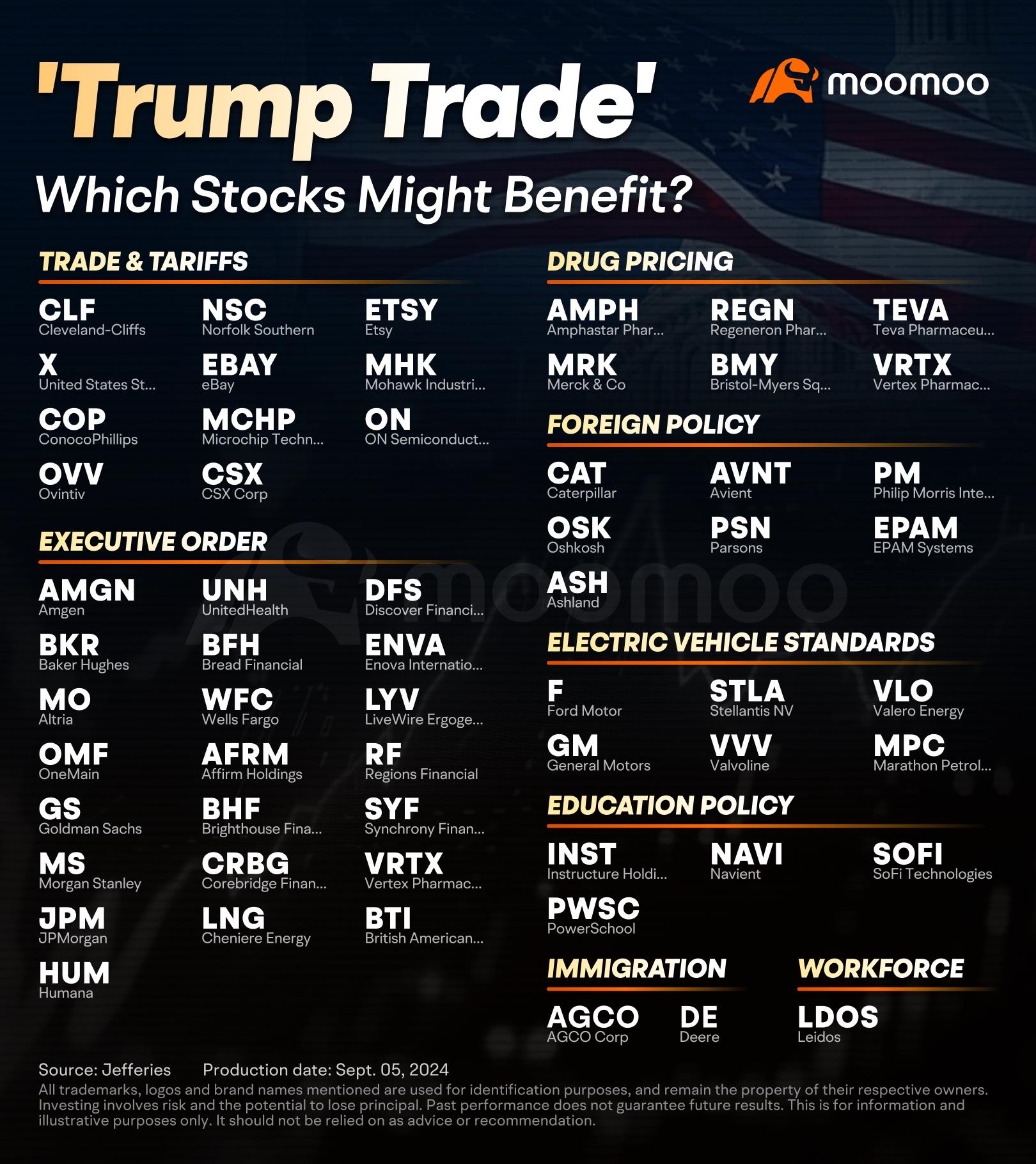Antitrust and hidden fees: The current administration, under which Harris is serving as vice president, has stressed its commitment to stronger antitrust enforcement beyond Big Tech, including hospitals, insurance, pharmaceuticals, food and media, according to Jefferies. The leadership has also implemented regulations to reduce hidden fees, which the analysts expect, could continue under a Harris administration, should she win the presidential race, according to the analysts' note.



Shifting Gears : all the good shares on his side
Simon 5183 : The lower Trump's stock price, the greater the pressure from Financial Street, which means that Trump's chances of winning are greater.
dookiro : Will interest fed rate drop drastically if Trump were to win?
D3VIN-007 dookiro : no
Mr Neitaniel :
dookiro Shifting Gears : Can you elaborate what’s all the good shares?
amiable Hedgehog_758 : TRUMP 2024
Little Johnny : If Harris wins, we all lose. We know there is no such thing as fair and honest elections anymore. When Trump wins they will try their best to crash the economy and the dollar before he takes office in January.